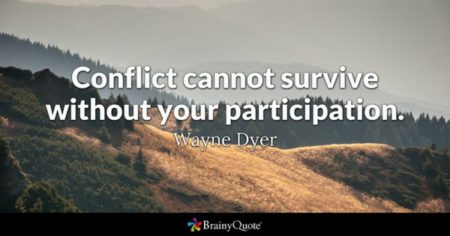13 results for tag: Disconnection
How Sobriety Strategies Can Help Anxious People Reenter Society After The Pandemic
This article discusses strategies that work for recovering alcoholics and addicts and may help people who are choosing to return to their lives pre-pandemic. The basic recovery principles of accepting what is true right now, creating and sticking to a plan, identifying feelings/emotions, connecting with the community, and gratitude are the cornerstones of recovery. For my first few years, they were vital to my survival. Today, they are a natural part of my life expressed in ways that are more representative of who I am now.
I encourage you to be patient with yourself and allow space for the more challenging feelings and emotions you may experience, like anxiety, distance, being overwhelmed, panic, anxiousness, depression, and possibly wanting to hide under the covers. For most people, these emotions will be temporary. Let your friends and family know what you are going through if that feels safe. I highly recommend having some fun, plain old simple fun! Laugh and play as often as you can! Just because you are re-entering society does not mean you have to consume more alcohol/drugs than you know is good for you. Fun is the goal, not another form of numbness or reason to feel isolated. The principles below may be helpful guides for you as you expand your world to your specific needs and wants.
...
How Iceland Got Teens to Say No to Drugs – The Icelandic Model
I become excited and inspired when I see concepts, ideas, and methods that I use in my work validated by international scientists and authors. The two articles that I have included excerpts from offer alternative ideas about the use and abuse of alcohol, tobacco, and drugs. From my experience, combining these two perspectives is the core of my work, supporting and facilitating shifting patterns, behaviors, obsessions, and addictions.
I typically integrate these three principles/methods for shifting unwanted patterns and behaviors.
- Exercises supporting the discovery and understanding of our patterns and thinking.
- Explore what we feel connected to, or the lack of connection, to people, animals, friends, family, and our environment. Create a plan to improve and expand our connections. (Read Johann Hari's views on addiction and connection at the bottom of this post.).
- Brainstorm interests, passions, and activities that we have either enjoyed in our past or present or would like to explore, including creative expressions, physical activity, opportunities to connect with the natural world, or anything that inspires or stimulates us. We follow the brainstorming process by implementing some of these interests and activities into our lives before or during launching into facilitating the shift in the unwanted behaviors. In short, let's find out what will inspire and stimulate you to replace the patterns, behaviors, and addictions that are problematic. (This parallels the process Harvey Milkman researched in the U.S. and implemented in Iceland, discussed in the main article focusing on teens and addiction.)
Arguments About $ Aren’t About Money
Arguments. The first time I meet a new couple that I am working with, I ask them to each share why they are here today. Almost without exception, they each launch into a one-sided description of a recent argument, telling it solely from their perspective. In their minds, they are seeking relationship counseling because of an argument or arguments.
I ask a few more questions to get a greater understanding of their current challenges. Most of the time, they continue to refer back to the argument or arguments previously mentioned.
I will follow that up with a question similar to this, "So if I am hearing you correctly, you are here because of an argument or arguments, not due to a lack of trust, connection, respect, communication, commitment, safety, and/or intimacy?".
 ...
...
 ...
... Conflict Resolution Workshop – Individuals & Couples!

Can You Go Crazy from Lack Of Touch? Life of the Skin-Hungry
We all need touch. We may feel like we don't, but we do. Even those among us who have suffered physical trauma from the hands of others need touch. For some people, touch may come with some challenges; this does not mean it is less important; it needs some navigating for touch to be a positive experience.
What happens when we do not receive enough physical touch? The answer varies from person to person, but we all suffer from feeling "untouchable" or untouched. This may express itself as depression, anxiety, loneliness, isolation, aggression, anger, sadness, or many forms of physical or emotional pain. The key is to learn what means of touch and physical affection are most supportive to you and when.
...
A Cure for Loneliness – How To Make Connects That Count
I am not aware of anyone who has not experienced loneliness at some point in their lives. Everyone experiences loneliness or isolation. For many, it is an ongoing struggle. People often assume that others whose friends and/or family always surround them do not experience loneliness. This assumption needs to be corrected. We can experience loneliness no matter how many people are in our lives; loneliness is not an exclusive club for those who are shy, awkward, or introverted. Loneliness can affect anyone, even "The Cool People".
Before we get to the article A Cure For Loneliness, here is a short video with Johann Hari. He is a controversial author, journalist, and explorer of life and people. He has great ideas, even if he is only sometimes on target about why things are how they are. You will enjoy his talk on loneliness. It is less than four minutes.
https://youtu.be/bC2Na1E3iVg
...







